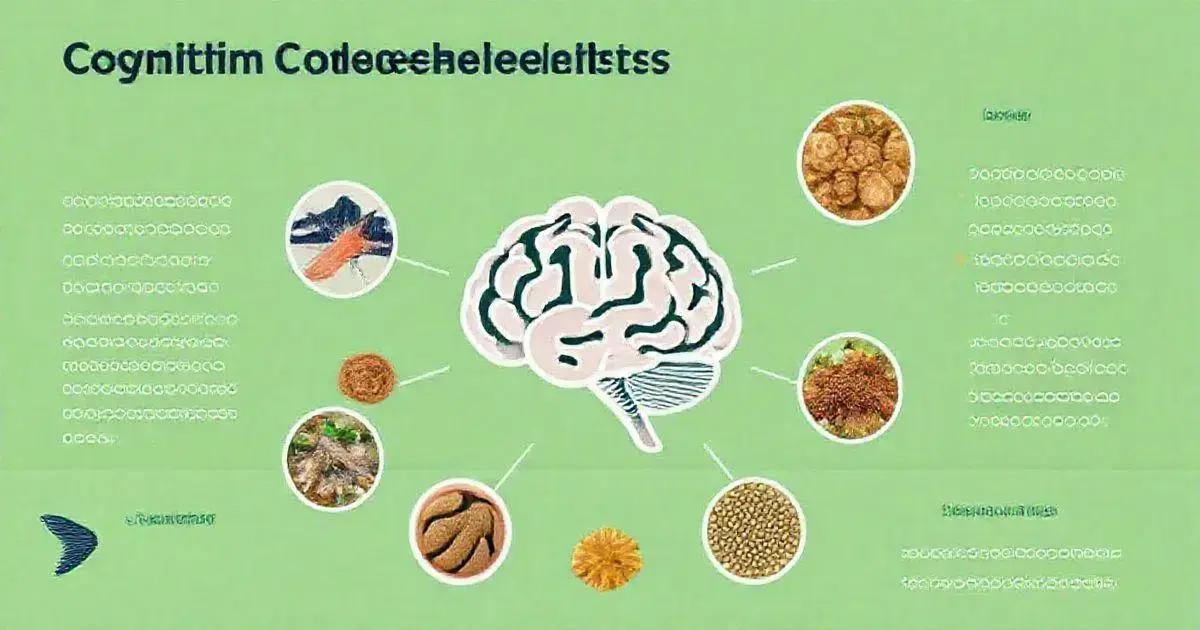How to support brain health with Omega-3s includes understanding their importance, incorporating rich food sources like fatty fish and walnuts, experiencing benefits for cognitive functions like improved memory and mood regulation, and applying practical tips to make it easy to include Omega-3s in your daily diet.
How to support brain health with Omega-3s is vital for anyone looking to enhance cognitive function and overall wellbeing. These essential fatty acids play a crucial role in brain health, influencing everything from mood to memory. In this article, we will dive deep into the relationship between Omega-3s and brain health, exploring the top food sources that can enrich your diet and boost your brainpower. Discover practical tips and insights to seamlessly add these vital nutrients to your daily routine.
Understanding Omega-3s and Brain Health

Understanding Omega-3s is essential as they are vital nutrients that play a significant role in maintaining brain health. These fatty acids are not produced by the body, which means they must be obtained through diet or supplements. There are three primary types of Omega-3s: ALA (alpha-linolenic acid), EPA (eicosapentaenoic acid), and DHA (docosahexaenoic acid). ALA is found in plant sources, while EPA and DHA are mainly derived from marine life.
How Omega-3s Influence Brain Function
The human brain is composed of nearly 60% fat, with DHA being a crucial component. A sufficient intake of Omega-3s can support brain structure and functionality. Studies suggest that Omega-3s can enhance neurotransmission, which is vital for communication between brain cells.
Impact on Mood and Mental Health
Research indicates a strong relationship between Omega-3 intake and mood regulation. Low levels of Omega-3s have been linked to depression and anxiety. By incorporating adequate sources of Omega-3s into your diet, you may improve your mental wellness.
How Omega-3s Help with Memory and Learning
Omega-3s also contribute to better memory and learning capabilities. DHA is thought to support cognitive function and the maintenance of neural pathways. Thus, a diet rich in Omega-3s can help enhance overall cognitive performance.
Top Foods Rich in Omega-3 Fatty Acids

Including the right foods in your diet is key to obtaining Omega-3 fatty acids. Here are some top foods rich in Omega-3s:
Fatty Fish
Fatty fish are among the best sources of Omega-3s. Fish like salmon, sardines, and mackerel are packed with EPA and DHA. Aim for at least two servings of fatty fish each week.
Chia Seeds
Chia seeds are a great plant-based source of ALA. They can be added to smoothies, oatmeal, or yogurt for a nutritious boost. Just one ounce of chia seeds provides around 5,000 mg of Omega-3s.
Walnuts
Walnuts are another excellent source of ALA. They can be eaten as a snack, added to salads, or incorporated into baked goods. A handful of walnuts can significantly contribute to your daily Omega-3 intake.
Flaxseeds
Flaxseeds are rich in ALA and can be easily included in your diet. Ground flaxseeds can be mixed into smoothies, sprinkled on cereals, or added to baked goods. Just a tablespoon offers a substantial amount of Omega-3s.
Algal Oil
Algal oil is derived from algae and serves as a vegan-friendly source of DHA and EPA. Taking algal oil supplements can help those who do not consume fish get their Omega-3s.
Benefits of Omega-3s for Cognitive Functions

Omega-3 fatty acids offer numerous benefits for cognitive functions, making them essential for maintaining brain health. Here are the key advantages:
Improved Memory
Research suggests that Omega-3s, particularly DHA, can enhance memory performance. Regular consumption of Omega-3-rich foods helps strengthen memory recall and supports overall cognitive function.
Enhanced Learning Abilities
Omega-3s may play a role in improving learning abilities. Studies have shown that these fatty acids can facilitate the brain’s learning processes, making it easier to acquire new information.
Mood Regulation
Adequate levels of Omega-3s are linked to better mood regulation. People who consume sufficient Omega-3s often experience lower levels of anxiety and depression, contributing to a more stable emotional state.
Support for Neuroprotection
Omega-3s provide neuroprotective effects, which can help reduce the risk of neurodegenerative diseases. Their anti-inflammatory properties are believed to support brain cell health, protecting against cognitive decline.
Increased Focus and Attention
Including Omega-3s in your diet can improve focus and attention. They are essential for optimal brain function, helping individuals to concentrate and perform better in tasks that require sustained attention.
Tips for Incorporating Omega-3s into Your Diet

Incorporating Omega-3s into your diet can be simple and delicious. Here are some practical tips for adding these essential fatty acids to your meals:
Choose Fatty Fish
Include fatty fish, such as salmon, sardines, and mackerel, in your weekly meal plan. Aim for at least two servings a week to boost your Omega-3 intake.
Snack on Nuts and Seeds
Snack on walnuts or chia seeds for a healthy Omega-3 boost. Sprinkle chia seeds on your yogurt or oatmeal, or enjoy a handful of walnuts as a midday snack.
Use Flaxseed Oil
Incorporate flaxseed oil into your salad dressings or smoothies. Just one tablespoon daily can provide a significant amount of ALA.
Explore Algal Oil Supplements
If you’re not eating fish, consider algal oil supplements. They are a great vegan source of DHA and EPA. Always consult with a healthcare provider before starting any new supplement.
Add Omega-3s to Breakfast
Add Omega-3s to your breakfast by using flaxseed meal in pancakes or muffins. You can also mix chia seeds into smoothies or oatmeal for an extra nutrient boost.
Embracing Omega-3s for Brain Health
Incorporating Omega-3 fatty acids into your diet is essential for supporting brain health and enhancing cognitive functions. These vital nutrients, found in various foods like fatty fish, nuts, and seeds, offer numerous benefits, including improved memory and mood.
By understanding the importance of Omega-3s and actively seeking ways to include them in your meals, you can positively impact your overall health. Whether through dietary changes or supplementation, Omega-3s can help foster better mental wellbeing.
Make a commitment to prioritize these healthy fats in your diet, and you may experience improved brain function and quality of life.
FAQ – Frequently Asked Questions about Omega-3s and Brain Health
What are Omega-3 fatty acids and why are they important for brain health?
Omega-3 fatty acids are essential fats that the body cannot produce on its own. They are crucial for maintaining brain health, supporting cognitive functions, and promoting emotional stability.
What are the best food sources of Omega-3s?
The best food sources include fatty fish like salmon, walnuts, chia seeds, flaxseeds, and algal oil. Incorporating these foods into your diet can boost your Omega-3 intake.
How can Omega-3s improve cognitive functions?
Omega-3s can enhance memory, improve learning abilities, regulate mood, and offer neuroprotective effects that help prevent cognitive decline.
How often should I include Omega-3-rich foods in my diet?
It is recommended to include Omega-3-rich foods at least twice a week as part of a balanced diet to support optimal brain health.
Can I take Omega-3 supplements instead of getting them from food?
Yes, Omega-3 supplements, such as fish oil or algal oil, can be effective alternatives if you struggle to get enough Omega-3s from food sources. Always consult a healthcare provider before starting any new supplement.
Are there any risks associated with Omega-3 supplementation?
While Omega-3s are generally considered safe, high doses can lead to side effects such as increased bleeding risk. It’s important to follow dosage recommendations and consult with a healthcare professional.













